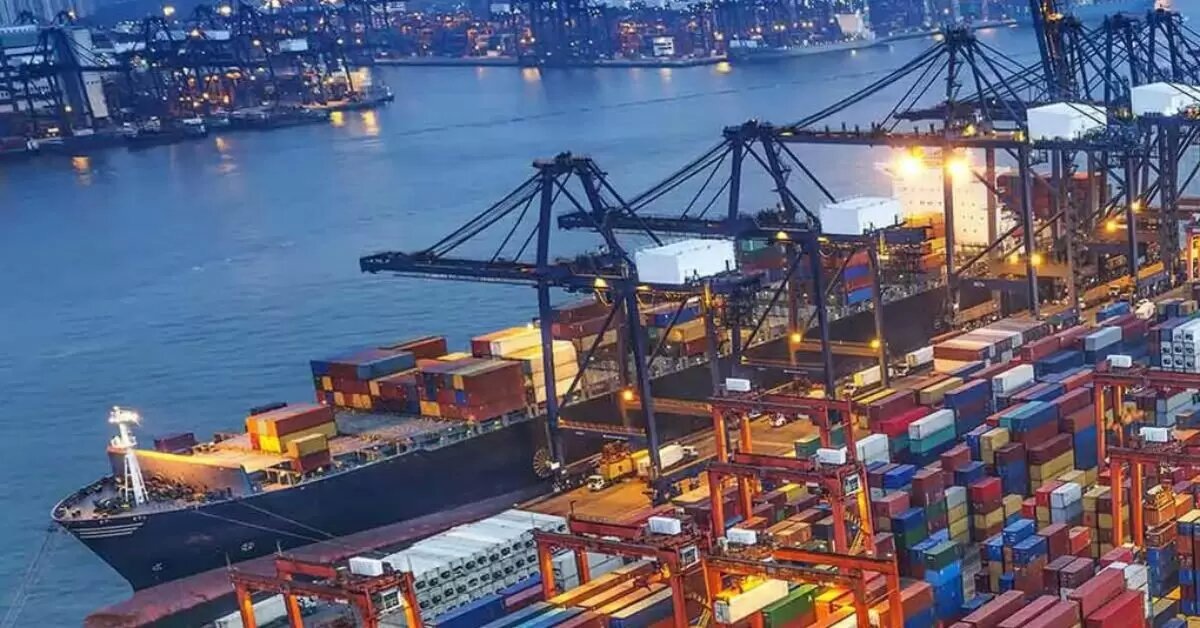This move comes in the wake of the recent US decision to designate one of the port’s terminals, Dongjiakou, as a recipient of Iranian oil from a “shadow fleet” tanker, signaling a shift by Beijing against a network of ships that bypass international restrictions.
At the same time, the European Union is proceeding with the adoption of the 19th sanctions package, which, upon final approval by member states, will include company names and will constitute the most extensive set of measures against Moscow to date.
According to an announcement published by the competent Chinese authorities and revealed by Reuters, from November 1st, the entry of ships using fake International Maritime Organization (IMO) numbers and tankers older than 31 years will be prohibited at the Huangdao port terminals in eastern China.
When we talk about fake IMO numbers, we mean that some ships – primarily from the so-called “shadow fleet” – declare a fake or stolen number to hide their true identity.
Also, the decision to restrict access to old tankers over 31 years is not random.
These ships are considered high-risk, as they present a greater probability of damage or accident, especially when operating without sufficient maintenance or international insurance coverage.
The majority of the so-called “shadow fleet,” which transports oil under sanctions, relies precisely on this type of old tanker.
According to the relevant document from the terminal operators, which came to Reuters’ attention, ships that have invalid or expired certificates from various international organizations will be prohibited from approaching the Huangdao port in eastern China, as well as ships with a history of pollution or accidents in the last three years.
The terminal operators are also introducing a scoring system that assesses the risk level of ships. The older the ship, the lower its score.
With a maximum score of 100, ships with a score below 55 are considered high-risk and will be prohibited from docking.
The scoring system also takes into account the ship’s classification society and pollution liability coverage, as the document shows.
The measures essentially target the “shadow fleet” – a network of ships that transports Iranian and Russian oil, bypassing Western sanctions, through flag changes, deactivation of tracking systems, or fake documents.
The decision follows the recent action by the United States to designate one of its terminals, the neighboring Dongjiakou, as a recipient of Iranian oil, which was transported by sanctioned vessels.
The port of Qingdao, with its Huangdao and Dongjiakou terminals, is the main gateway for Iranian oil into China and one of Asia’s most important energy hubs.
The same port was also used as a key channel for the import of Russian oil into China, despite the strict sanctions regime.
sanctions that the United States
and Europe have imposed.
It is noted that Russia’s “shadow fleet”, beyond transporting oil under
sanctions, is also reportedly used for military purposes, such as launching
drones for reconnaissance and attacks on airports or cutting undersea cables.
These ships deactivate their tracking systems, falsify documents and operate with aged tankers, increasing the risk of accidents and pollution.
In early 2025, this fleet exceeded 900 vessels, with an average age of over 20 years, while fewer than half have so far been included on the EU sanctions lists.
In a recent speech, the President of the European Commission, Ursula von der Leyen, stated that the 19th package will target “the financial loopholes that Russia uses to evade sanctions”.
At the same time, the European Union is further hardening its stance towards Moscow, regarding the 19th sanctions package decided in September by the European Commission, which targets not only Russian but also foreign companies accused of
facilitating the circumvention of the restrictions.
The final approval, which requires unanimity from the member states, will be accompanied by the publication of an annex with the names of the companies and will constitute the EU’s most extensive web of restrictions to date.
against Moscow.
A draft annex of the sanctions, seen by POLITICO, reveals that it will
target banks, businesses and energy companies, as well as 120 new tankers that are said to be part of the “shadow fleet” transporting Russian mineral fuels, violating the oil price cap and the rules imposed after the Kremlin’s annexation of Crimea in 2014.
Among the entities facing sanctions are nine foreign banks, two oil
trading companies, a series of special economic zones, an international cryptocurrency exchange and, even, a stablecoin regulated outside Russia.
Companies from the United Arab Emirates, Kyrgyzstan and Tajikistan are included
in the list, but the number of Chinese companies is limited – although it is likely that more will be added.
The annex also includes space for the addition of third-country ports.





